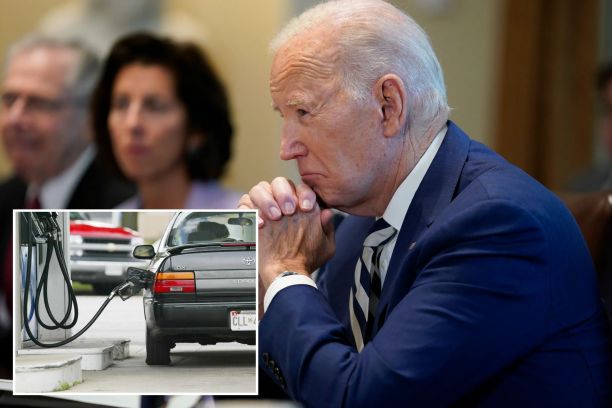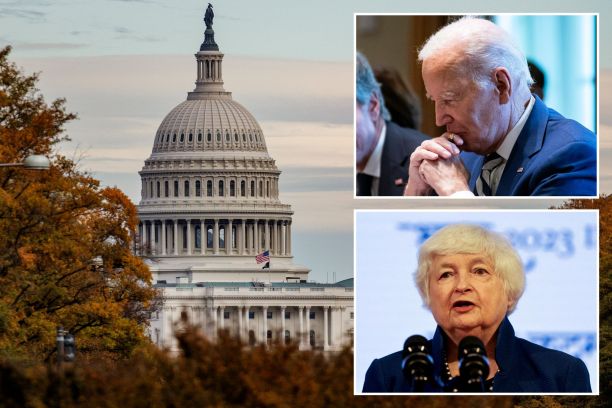Joe Biden’s War On Oil and Reckless Economic Policies have Imperiled National Security; US Budget Deficit Balloons to $1.7 Trillion — Largest Outside COVID Era
Joe Biden’s war on oil and reckless economic policies have imperiled national security:
President Joe Biden’s reckless energy policies, including a relentless war on US oil, have now seriously undercut national security.
To wit, the US Energy Information Agency just pegged the nation’s supply of emergency oil in the Strategic Petroleum Reserve at just 351 million barrels — about half its capacity.
Biden has been depleting it periodically in the name of “Message: I care,” as his other policies have driven pump prices far above the level when he took office.
That’s the lowest the SPR has been in 40 years, providing enough to last only 17 days in a national emergency.
What a time to run low!
The Middle East may erupt any day, threatening oil exports from the region; Russian oil remains banned as its war in Ukraine rages on.
Yet Biden’s done everything in his power to halt domestic oil production, to please the Green extreme.
His team actually just bragged that they’re planning for just three potential oil and gas lease sales on federal territory — the “fewest” in “history” — over the next five years.
Their program “phases down oil and gas leasing in the Gulf of Mexico,” a Biden press release boasts, including “zero oil and gas lease sales in the Atlantic, Pacific and Alaskan waters.” Great.
That followed the cancellation of seven leases in the Arctic National Wildlife Refuge and a push to severely limit leasing in the National Petroleum Reserve-Alaska. —>READ MORE HERE
US budget deficit balloons to $1.7 trillion — largest outside COVID era:
The US government on Friday posted a $1.695 trillion budget deficit in fiscal 2023, a 23% jump from the prior year as revenues fell and outlays for Social Security, Medicare and record-high interest costs on the federal debt rose.
The Treasury Department said the deficit was the largest since a COVID-fueled $2.78 trillion gap in 2021. It marks a major return to ballooning deficits after back-to-back declines during President Biden’s first two years in office.
The deficit comes as Biden is asking Congress for $100 billion in new foreign aid and security spending, including $60 billion for Ukraine and $14 billion for Israel, along with funding for US border security and the Indo-Pacific region.
The big deficit, which exceeded all pre-COVID deficits, including those brought about by Republican tax cuts passed under Donald Trump and from the financial crisis years, is likely to enflame Biden’s fiscal battles with Republicans in the House of Representatives, whose demands for spending cuts pushed the US to the brink of default in early June over the debt ceiling.
A deal to avoid a government shutdown over deeper spending cut demands from Republican hardliners led to the ouster of House Speaker Kevin McCarthy, and the party is still divided over who should lead them, which is expected to make negotiations ahead of a new fiscal deadline in mid-November more difficult.
For September, the final month of the fiscal year, the deficit fell to $171 billion from $430 billion in September 2022.
“Falling revenues are a significant contributor to the 2023 deficit, underscoring the importance of President Biden’s enacted and proposed policies to reform the tax system,” Treasury Secretary Janet Yellen and Office of Management and Budget Director Shalanda Young said in a joint statement.
The fiscal 2023 deficit would have been $321 billion larger, but was reduced by this amount because the Supreme Court struck down Biden’s student loan forgiveness program as unconstitutional. The ruling forced the Treasury to reverse a pre-emptive charge against fiscal 2022 budget results that increased that year’s deficit. —>READ MORE HERE








Comments are closed.